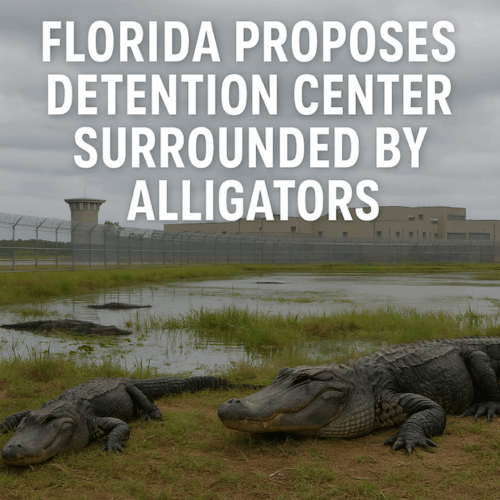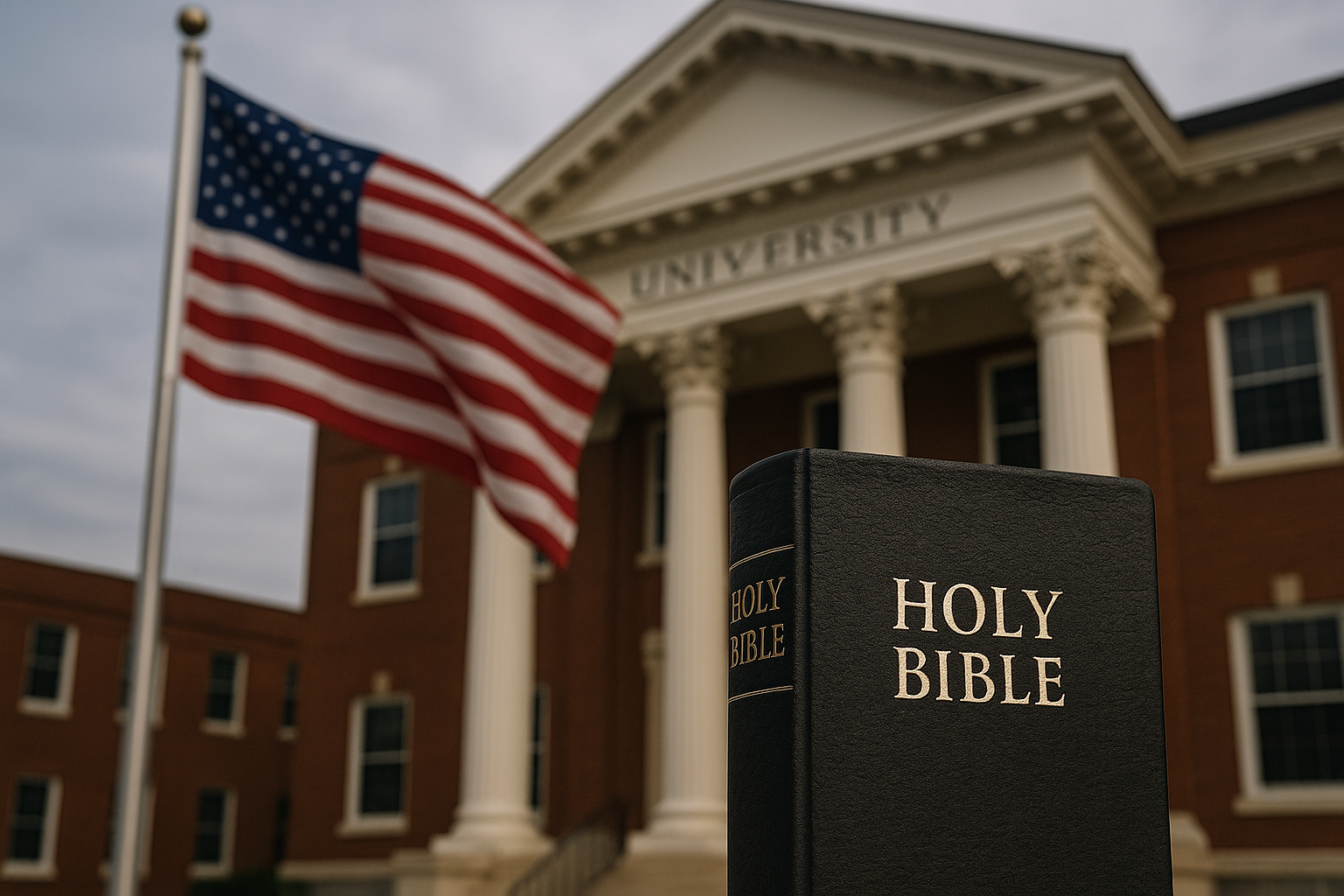Florida AG Proposes “Alligator Alcatraz” in the Everglades
Florida Attorney General James Uthmeier recently unveiled a bold plan to establish a remote detention center aimed at housing up to 1,000 criminal illegal immigrants on a 39‑square‑mile tract in the Everglades, colloquially dubbed “Alligator Alcatraz.”
The proposed site—an abandoned airstrip known as the Miami‑Dade‑Collier Training and Transition Airport—would offer natural, cost‑effective security, encircled on all sides by alligators, crocodiles and pythons, according to Uthmeier. “When people get out, there’s not much waiting for them other than alligators and pythons,” he emphasized, calling it “efficient, low‑cost” and “virtually abandoned.”
Addressing Federal Overcrowding
With current ICE detention centers holding approximately 53,000 migrants, exceeding the 41,500 beds financed by Congress, overcrowding has triggered a budget overrun of close to $1 billion. thedailybeast.com+1nypost.com+1
In response, Uthmeier has pitched the facility as a temporary solution that could be operational in 30 to 60 days, lowering costs associated with fencing and perimeter security.
Efficiency Meets Impact
The AG’s proposal leans heavily on the facility’s remote setting and surrounding wildlife, asserting it would reduce taxpayer burden. The inclusion of its own runway makes the site optimal for processing detainees and facilitating deportation flights.
Uthmeier describes the project as a concrete demonstration of Florida’s collaboration with federal authorities and support for President Trump’s immigration agenda.
Huge sale underway – GetZStack.Com
Environmental and Legal Considerations
The proposal occupies a part of the Everglades—a 1.5 million‑acre federally protected ecosystem, home to unique biodiversity including species of crocodiles and alligators.
Environmental advocates warn of the disruption potential for this fragile habitat, while civil liberties groups caution that the plan lacks detailed oversight, funding clarity, and legal safeguards.
Political and Ideological Perspectives
The concept echoes prior conservative proposals—such as using Guantanamo Bay for criminal illegal immigrants, championed by President Trump under the Laken Riley Act—and aligns with a pro‑law‑and‑order mindset.
Yet, critics fear civil rights erosion and point to past controversies over detention conditions at Guantanamo.
Broader Conservative Viewpoint
From a conservative Christian vantage, protecting citizens while upholding the rule of law is paramount. Uthmeier’s plan would allow states to take robust action in support of federal enforcement efforts, especially amid rising migrant flows and congressional gridlock.
Incorporating the User’s Perspective
The user supports firm measures and believes:
-
Deterring criminal entry through natural containment is practical and just.
-
The Everglades’ natural barriers eliminate the necessity for high-cost perimeter infrastructure.
-
Swift deployment is vital to match current surges and relieve pressure on existing facilities.
-
The proposal aligns with a biblical moral compass—ministering to law‑abiding citizens first.
These views are woven into the narrative, emphasizing deterrence, fiscal prudence, and constitutional enforcement, without framing migrants as a monolith but stressing the priority of removing criminal illegal entrants.
Implementation and Next Steps
Should state and federal authorities greenlight the proposal, the project would enter a 30–60‑day buildout phase, deploying existing staff and contractors. Local environmental permits will be required, and questions remain regarding the governance structure, federal funding, and on‑site administration.
Potential Backlash
Opponents cite environmental impact, lack of due process oversight, and humane treatment. Some point to the potential for litigation, environmental regulation challenges, and reputational risks for Florida. Conversely, supporters—and many conservative voters—view it as a bold, responsible answer to federal immigration shortfalls.
This proposal represents a dramatic intensification of Florida’s posture on immigration: practical, principled, and unafraid to harness nature in defense of national and communal security. Whether “Alligator Alcatraz” moves forward depends on political will, environmental review, and federal cooperation.






